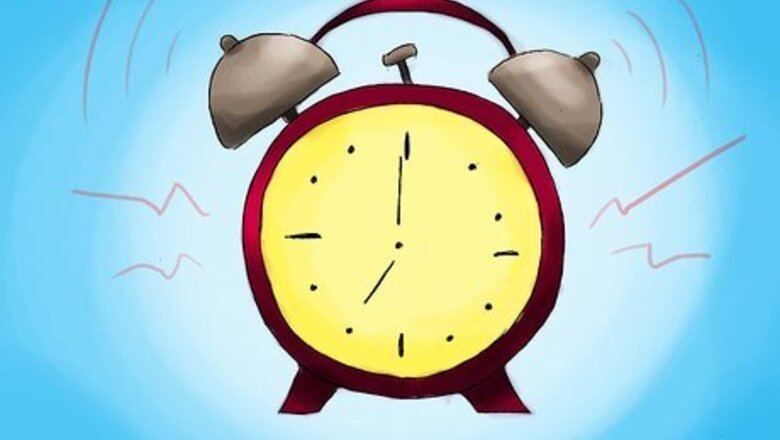
views
Waking Up
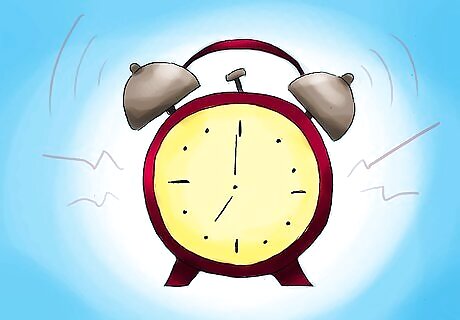
Put off getting up as long as possible. You want to get as much sleep as you can. However, you don't want to extend your sleep by hitting the snooze button, as that can just make you more tired. Instead, think about the latest time you could get up and still get to your exam. Set your alarm for that time. Just make sure to put your alarm clock or phone out of reach, so that you don't hit the snooze without thinking about it.
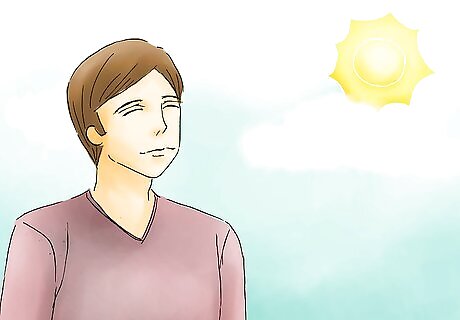
Soak up some sunlight. Sunlight can help you wake up and feel more alert. The key is to be outside within about an hour of waking up. It's important to skip the sunglasses, at least at first. The sunlight needs to hit your eyes for you to receive the waking up benefits of being outside.
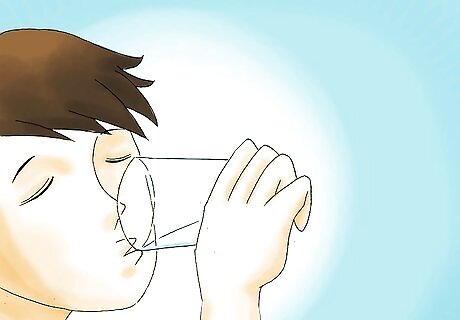
Hydrate yourself. Staying hydrated can help you feel more awake. Not having enough water will make you more tired, so be sure to drink some water before going into your exam. As a side note, don't forget to hit the bathroom before the exam, so you're not having to go while you're taking it. Cold water will wake you up more, so stick to ice water or a bottle of water from the refrigerator.

Eat a decent meal. You can't think your best on an empty stomach, so you need to eat before you go to your test. Don't eat anything too heavy, as it can make you sleepy. Pick something that centers on protein with some carbohydrates on the side for a boost. Carbohydrates keep you energized. Try some yogurt with fruit, for instance. Another option is a few links of chicken sausage and whole grain toast. You could also try some hummus with carrot sticks. If you're pressed for time, try a protein bar or shake.
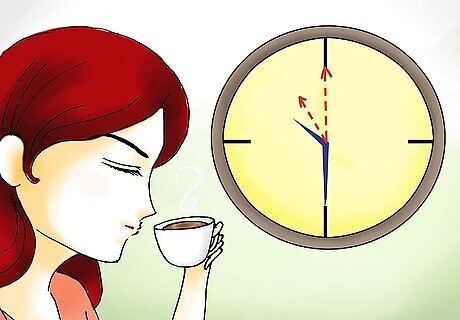
Drink your caffeine 30 minutes ahead of time. If you choose to drink caffeine to give you a boost, make sure to do it about 30 minutes before the test so it has time to kick in by the time you take the test. Caffeine will usually only give you a boost if you don't drink it every day, so use it sparingly. Keep your caffeine consumption under 400 milligrams for the day. A single cup of coffee has about 100 milligrams.
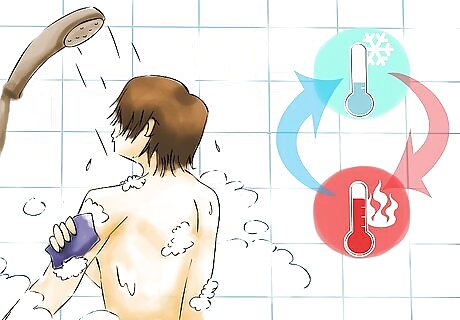
Take a wake up shower. A shower can energize you, jumpstarting you to alertness for you exam. However, the trick is to employ a hot and cold technique to increase your alertness after you're done cleaning off. Turn the shower all the way to cold for about 30 seconds, then turn it back to as hot as you can stand it for the same amount of time. Finally, turn it back to cold for another 30 seconds. The process of turning it hot and cold will make you much more awake.
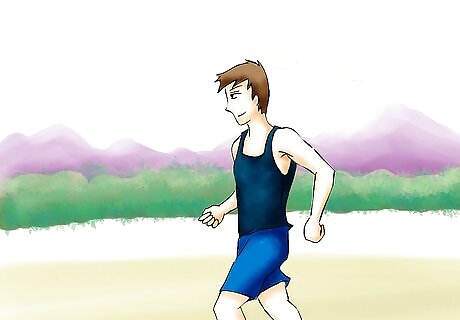
Do some light exercise. To help you wake up for your exam, do some light exercising right before. Getting your blood flowing helps you be more alert and ready to do your best. You don't need to run a marathon. Just spend 5 to 10 minutes walking briskly, doing some jumping jacks, or jogging in place.
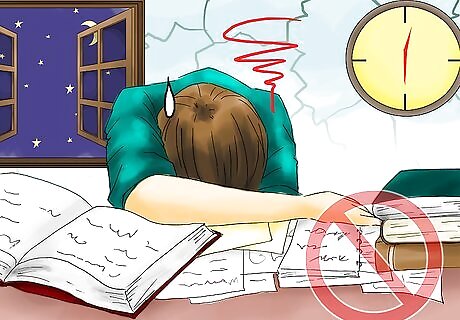
Don't put off sleep too long. Sleep is essential to your health and well-being. It can increase your chances of being sick, raise your blood pressure over time, increase negative moods, and affect your concentration and memory. In fact, getting a good night's sleep is one of the best things you can do to do well on a test you have to take. If you can, see if you can take a nap before your test. Naps can put you into the REM sleep cycle, which studies have shown can be helpful for reintegrating memory.
Staying Awake During the Test
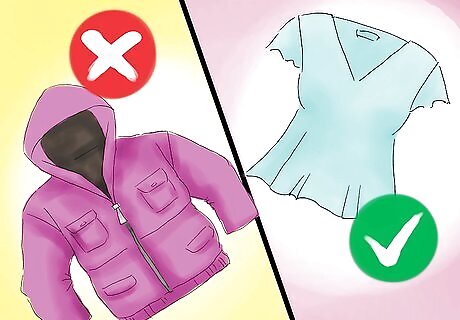
Stay cool. If possible, keep yourself cooler, temperature-wise. Dress down for the classroom you'll be in. Staying cold can keep you alert, so take off that sweater and put in a t-shirt. If you're too warm, you're more likely to get sleepy.
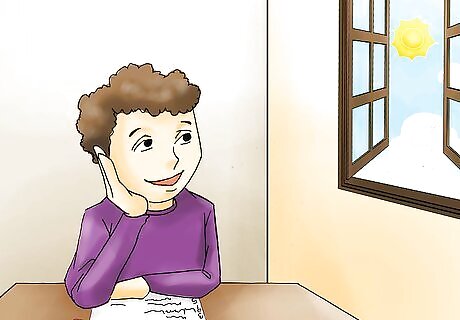
Sit by a window. Just like light can wake you up, it can also help you stay more alert while you're taking your test. To help you get as much light as possible, try to set up by a window. You'll get light from both outside and inside, and the natural light can help keep you awake.
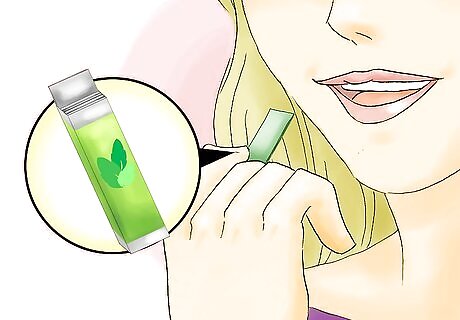
Chew gum. Chewing gum can help keep you awake. It actually helps oxygen flow to your brain, making you more alert for your exam. Pop in some gum during your exam to help you pay better attention, though make sure you chew quietly so you don't disturb the whole room.
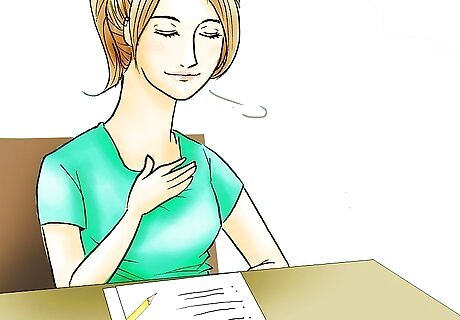
Take brain breaks. If you feel like you're having trouble concentrating, take a few seconds to refresh your brain. Just looking away can help some, but taking a few deep breaths is even better. Getting more oxygen to your brain can make you feel more alert.
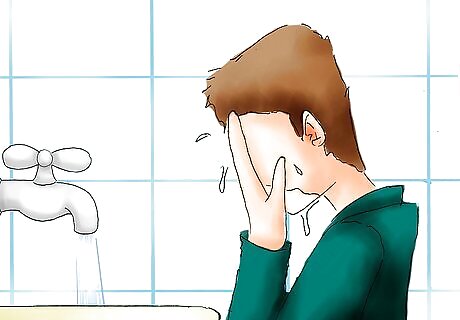
Ask to go to the bathroom. If your teacher will let you leave, take a quick bathroom break. Splash some water on your face to give yourself a break. Another option is running outside to get a breath of fresh air. Even just walking around can make you more alert.
Taking the Test
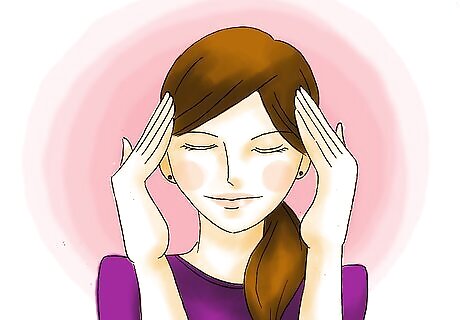
Don't let the test overwhelm you. When you're tired, a test can seem overwhelming with all the answers you have to give. The key is to calm yourself down. Take a few deep breaths to make sure you're calm, and then just take it one question at a time. Right up until the test begins, see if you can periodically refresh your memory with your notes and indoor study guides.
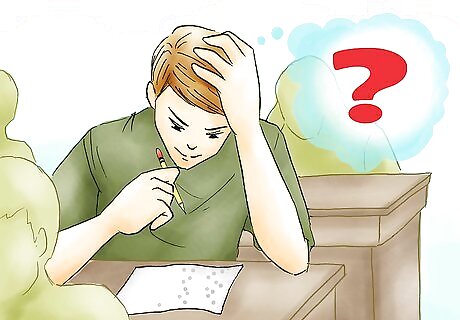
Read the questions carefully. You're going to be very sleepy and tired, and that can cause you to miss things in the questions. With every question, make sure you are reading it thoroughly and that you understand it completely before you answer. That way, you won't make careless mistakes. If you have to, try moving your lips as you read. You can't read the question out loud, of course, but pretending to do so can slow you down enough that you pay more attention to the question.
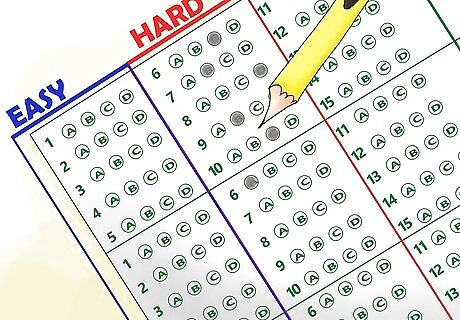
Work on the hardest parts first. When you get to the test, try tackling the hardest parts first. Your brain will be the most alert and ready at the beginning of the test, and you may wear down later on little sleep. Therefore, try to tackle the hardest or most important parts first, so that you have enough brain power to get through them. Another approach is to work on the parts you know best first. That way, you can breeze through them without making mistakes. However, you may have a harder time when it comes to the parts you find more difficult.
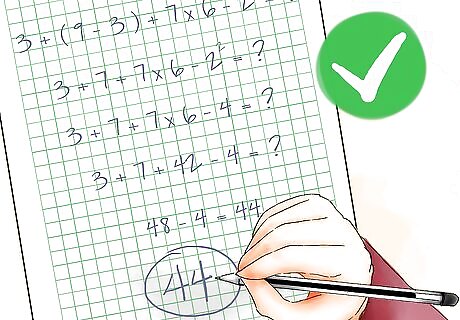
Write down what you can remember. You may not have perfect recall when you're working on little sleep. However, that doesn't mean you should skip questions completely if you have an idea of what to answer. Instead, try to write down what you can remember for short answers or take an educated guess from the list of choices. Most teachers will at least give you partial credit if you get part of the answer right. To take an educated guess from a choice of answers, start by crossing out the answers you know are wrong. If you can't figure out the answer, just pick one between the ones leftover.
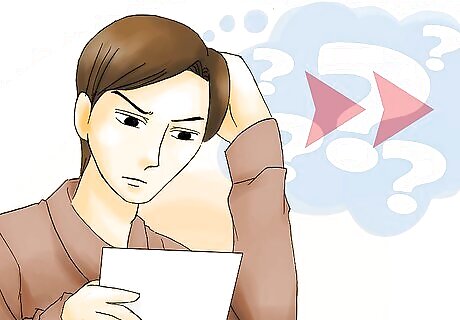
Don't stress over the questions you don't know. When you are tired, you're more likely to obsess over the questions you can't answer at all, trying to figure out the answer. Instead of obsessing, just skip the ones you don't know for now. If you have time at the end of the test, go back to the ones you skipped to see if you can figure out an answer.
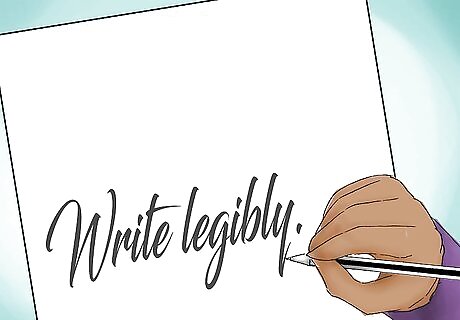
Watch your handwriting. Your handwriting may suffer if you've stayed up most of the night. Make sure you are writing clearly. You can't get credit for an answer that your teacher can't read, and if your handwriting isn't the most legible anyway, you'll need to pay special attention when you're tired.
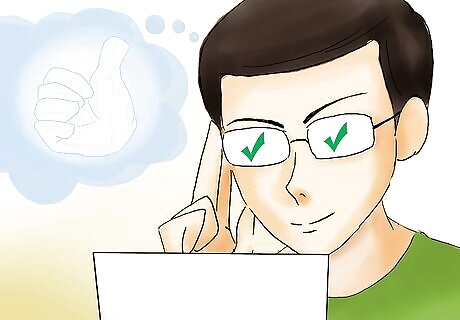
Check the test at the end. If you have time at the end, always go back over your test. Tiredness makes you careless, so you need to look for silly mistakes. Read through each question and answer to make sure you answered the whole question and that you didn't skip part or misinterpret it. You don't need to change answers if you read the question correctly. Your gut instinct is usually best.
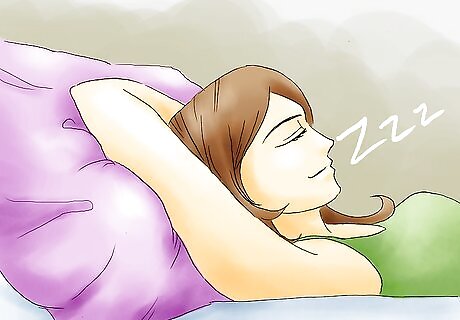
Get some sleep. Now that you've finished your test, go home, and get some sleep. You can't make up for all the sleep you lost, but getting a good night's sleep the next night is essential. You need to work to reset your sleep schedule to your normal one. Not getting enough sleep consistently causes a sleep deficit. In turn, your health can suffer greatly over time because your body doesn't have the time it needs to recover. Some studies have shown that consistent sleep deprivation is similar to being intoxicated.













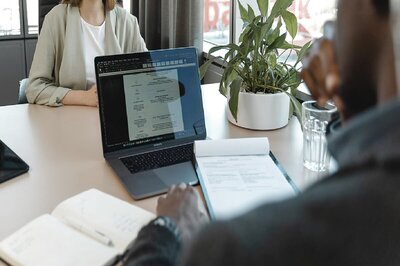





Comments
0 comment